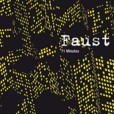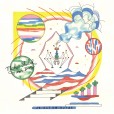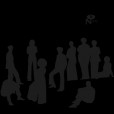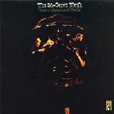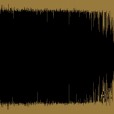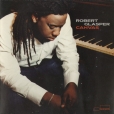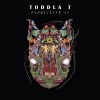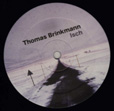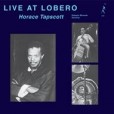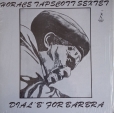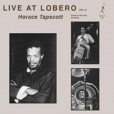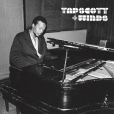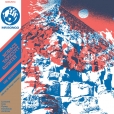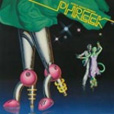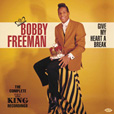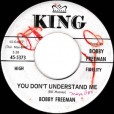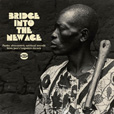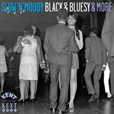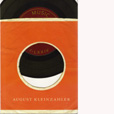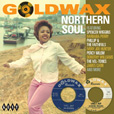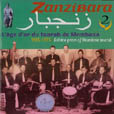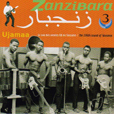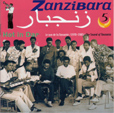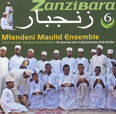Your basket is empty

‘Not a Best Of, but a reflection of Tori Kudo’s evolution as a composer, from playing with seasoned musicians, to playing with people just starting out, from playing with meticulous scores, to playing call & response melodies written down, to the songs here — instant improvisations based on keyboard compositions that Tori plays for the group. Yes, that is it. He plays a recording of himself on the keyboard, with singing or humming sometimes and he leaves it to the band to interpret this on the spot. Sometimes, you can make out the melody, other times it is quite obscure, as if a sort of common shyness flows out of the collected instrumentarium. And other times, well, it is a big party.’
With Eno more the guiding hand for this second collaboration with Cluster. Open, airy, ambient, unhurried. Originally released in 1978, but still fresh (except for Eno’s singing).
Released by Stax in 1973 — a massive rare groove album, sampled by Digable Planets and Jay-Z (amongst others) — Ghetto: Misfortune’s Wealth was a brooding, deep-funk admonition to the new black middle class, with no prospect of commercial success.
For its follow-up, Dale Warren cut out the rhetoric, and for political consolation dug deep into his musical roots, and his time in the mid-sixties as a songwriter at Shrine and Motown.
But Stax closed in 1975, and the tapes were abandoned. Now, miraculously retrieved from a Chicago basement, here’s a precious taster: hurt, disillusioned, beautiful, pure, sensuous Windy City soul music ,jazzy but street, musically sophisticated but emotionally direct.
The sleeve is all-black, with black-on-black text, and an embossed silhouette of the group — ‘probably the nicest single LP we’ve ever made’, says Numero.
Hurt, disillusioned, beautiful, pure, sensuous Windy City soul music from the mid-1970s, never out before.
With bassist Roberto Miranda and drummer Sonship in 1981.
Featuring a tremendous, side-long reading of Dark Tree.
Sparse, contemplative, classy, playful, deep jazz, recorded in 1983, with the focus on Tapscott’s brilliant piano-playing, accompanied by Aubrey Hart and Kafi Roberts on flute and saxophone. All-analogue; cut directly from the original master tapes. Tip-on sleeve.
Recorded in 1969 to follow up the classic The Giant Is Awakened LP, but never released; now sensationally sprung from the Flying Dutchman archives.
‘World Peace starts with a neo-baroque melody, leading to an eruption in sound, then ends as it began. The beautiful Your Child is the jewel in the crown, skirting modal, deep jazz and introducing elements of free jazz. Opening with bowed bass and piano, For Fats takes you on a journey, dropping into dark, stormy melodies, and developing a driving energy as it progresses.’
Tapscott is joined by the same personnel as Giant: Arthur Blythe, Everett Brown, David Bryant and Walter Savage. Produced by the legendary Bob Thiele.
The Leroy Burgess disco classic, with Weekend.
Ballads and rocking rhythm and blues recorded for King in 1960-61.
Earth-moving stuff here, of course, with Joe Henderson, Alice Coltrane, Gary Bartz, Norman Connors… but ‘forgotten’? Even as a marketing angle, you must be kidding.
A fabulous, landmark compilation of deep, southern and bluesy ballads — originally released in 1983 — back again at last, with improved sound and numerous additions.
This fine American-Grain poet digs Elmo Hope as badly as he does Lucia Berlin (and he’s sniffy about Tom Waits). His prose here is clear as a bell, ranging from Bach to the Louvins. Warmly recommended.
Stompers, floaters and ballads, with several impossible to get otherwise.
Spicy, deep, sensual Arab, Black and Asian styles, lipsmackingly mixed together in classic Taarab — when electric guitars, bass guitars, organs and kit drums kicked orchestral instruments out of bed.
Cream-of-the-crop, fabulous, firing dance music from Dar es-Salaam, rocking between shimmering, swinging guitars and delirious, riffing horns. Check the rest of the series, especially Volume 2.
A form of Sufi music with its roots in the ancient Arab world, surviving only in Zanzibar: slowly building in intensity, with songs and poetry, and passages for dancing, featuring a wide range of percussion.
